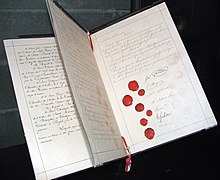Chiang Wei-kuo
| |||||||||||||||||||||||||||||||||||||||||||||||||||||||||||||||||||||||||||||||||||||||||||||||||||||||||||||||||||||||||||||||||||||||||||||||||||||||||||||||||||||||||||||||||||||||||||||||||||||||||||||||||||||||||||||||||||||||||||||||||||||||||||||||||||||||||||||||||||||||||||||||||||||||||||||||||||||||||||||||||||||||||||||||||||||||||||||||||||||||||||||||||||||||||||||||||||||||||||||||||||||||||||||||||||||||||||||||||||||||||||||||||||||||||||||||||||||||||||||||||||||||||||||||||||||||||||||||||||||||||||||||||||||||||||||||||||||||||||||||||||||||||||||||||||||||||||||||||||||||||||||||||||||||||||||||||||||||||||||||||||||||||||||||||||||||||||||||||||||||||||||||||||||||||||||||||||||||||||||||||||||||||||||||||||||||||||||||||||||||||||||||||||||||||||||||||||||||||||||||||||||||||||||||||||||||||||||||||||||||||||||||||||||||||||||||||||||||||||||||||||||||||||||||||||||||||||||||||||||||||||||||||||||||||||||||||||||||||||||||||||||||||||||||||||||||||||||||||||||||
Read other articles:

Сельское поселение России (МО 2-го уровня)Двулученское сельское поселение (упразднено) 50°02′23″ с. ш. 38°01′24″ в. д.HGЯO Страна Россия Субъект РФ Белгородская область Район Валуйский Включает 9 населённых пунктов Адм. центр Двулучное Глава администрации Скарни

三寶顏人,是菲律賓和馬來西亞一個以三寶顏城為中心發展而成的克里奧人族群。西班牙普查記錄到,三寶顏市居民中有三分之一人擁有不同程度的西班牙人和拉丁美洲血緣。三寶顏人因他們的文化和歷史遺產,和他們的語言,使他們自別於周圍的族群。 起源 在西班牙殖民菲律賓時,為了防止來自蘇祿群島的摩洛人海盜襲擊他們中南部地區,西班牙殖民地政府命令在三寶顏...

Tchad i olympiska spelen IOK-landskodCHA KommittéTchads olympiska kommittéOlympiska sommarspelen 2000 i SydneyDeltagare2 deltagare i 1 grenFanbärareKaltouma Nadjina Medaljsummering Guld0 Silver0 Brons0 Totalt0 Tchad i olympiska sommarspelen1964 •1968 • 1972 • 1976 • 1980 • 1984 • 1988 • 1992 • 1996 • 2000 • 2004 • 2008 • 2012 • 2016 • 2020 Tchad deltog i de olympiska sommarspelen 2000 med en trupp ...

Асинхронний семафор - це структура, яка використовується в асинхронних моделях програмування. Її мета — заблокувати fire-дію, дозволяючи йому виконатися тільки після того, як група інших, асинхронних дій виконається повністю. Асинхронний семафор — специфічний ти...

Canoeing at the1996 Summer OlympicsSlalomC-1menC-2menK-1menwomenSprintC-1 500 mmenC-1 1000 mmenC-2 500 mmenC-2 1000 mmenK-1 500 mmenwomenK-1 1000 mmenK-2 500 mmenwomenK-2 1000 mmenK-4 500 mwomenK-4 1000 mmenvte These are the results of the men's C-2 slalom competition in canoeing at the 1996 Summer Olympics. The C-2 (canoe single) event is raced by two-man canoes through a whitewater course. The venue for the 1996 Olympic competition was at the Toccoa/Ocoee River near the Georgia-Tennessee st...

Bagian dari seri artikel mengenaiSyiah Peribadatan Penerus Nabi Muhammad Imamah Duka Muharram Tawassul Paham Kebohongan Ayatullah Arbain Hari perayaan Syiah Asyura Tabuik Arbain Maulud Idulfitri Iduladha Idulghadir Sejarah Ayat pemurnian Hadits dua hal berat Mubāhalah Khumm Rumah Fatimah Fitnah Pertama Fitnah Kedua Pembunuhan Ali Pertempuran Karbala Cabang-cabang Syiah Zaidiyah Syiah Dua Belas Imam Ja'fari Akhbari Syaiki Usuli Batini Alevi Bektashi Ghulat Alawi Hurufi Qizilbash Ismāʿīlīs...

20000 فرسخ تحت الماء20,000 Leagues Under the Sea (بالإنجليزية)[1] معلومات عامةالصنف الفني فيلم خيال علمي — فيلم غواصات — فيلم مقتبس من رواية — فيلم دراما المواضيع قرصنة بحرية — بغض البشرية تاريخ الصدور 23 ديسمبر 1954[2][1] (الولايات المتحدة)16 سبتمبر 1955[3] (السويد) مدة العرض 127 دقي

Modern American history The United States of America2008–presentBarack Obama, Joe Biden, and Donald Trump in 2017LocationUnited StatesIncludingWar on TerrorWar on drugsFourth Industrial RevolutionCOVID-19 PandemicMigrations:New Great MigrationCentral American migrant caravansPresident(s)George W. BushBarack ObamaDonald TrumpJoe BidenKey events 2008-2016 Great Recession Deepwater Horizon oil spill Occupy Wall Street movement US diplomatic cables leak Citizens United v. FEC Killing of Osama b...

Submarine rescue ship Chihaya For other ships with the same name, see Japanese ship Chihaya. JDS Chihaya History Japan Name Chihaya (ちはや) NamesakeChihaya Ordered1959 BuilderMitsubishi, Tokyo Laid down15 March 1960 Launched4 October 1960 Commissioned15 March 1961 Decommissioned28 February 1989 HomeportKure IdentificationPennant number: ASR-401, ASU-7011 StatusDecommissioned Class overview Preceded byN/A Succeeded byFushimi class General characteristics TypeSubmarine rescue ship Disp...

Polish mockumentary television series The Office PLPolish posterGenre Mockumentary Sitcom Based onThe OfficeDirected byMaciej BochniakStarring Piotr Polak Vanessa Aleksander Rafał Kowalski Adam Woronowicz Kornelia Strzelecka Jan Sobolewski Jakub Zajac Milena Lisiecka Monika Obara Małgorzata Gorol Monika Kulczyk Marcin Pempuś Adam Bobik Mikołaj Matczak Mateusz Król Country of originPolandOriginal languagePolishNo. of seasons3No. of episodes36ProductionRunning time23–31 minutesProduction...

1915 American filmHis Father's RifleScene from filmDirected byEdward J. Le SaintWritten byJoseph F. PolandStarringEarle FoxeBertram GrassbyWilliam HowardProductioncompanySelig Polyscope CompanyDistributed bySelig Polyscope CompanyRelease dateJune 17, 1915Running time3 reelsCountryUnited StatesLanguageSilent His Father's Rifle is a 1915 American silent short drama directed by Edward LeSaint and written by Joseph F. Poland. The film starred Earle Foxe and Bertram Grassby in the main roles. The ...

روت فايس إيسن الاسم المختصر RWE تأسس عام 1907 (منذ 116 سنة) الملعب ملعب إيسن إيسن، ألمانيا(السعة: 20,650) البلد ألمانيا الدوري الدوري الألماني الدرجة الرابعة الإدارة المدرب كريستيان نيدهارت الموقع الرسمي www.rot-weiss-essen.de الطقم الرسمي الطقم الأساسي الطقم الاحتياطي تعديل مصدري - ت...

In ancient Roman religion, Vica Pota was a goddess whose shrine (aedes) was located at the foot of the Velian Hill, on the site of the domus of Publius Valerius Publicola.[1] This location would place the temple on the same side of the Velia as the Forum and perhaps not far from the Regia. Cicero explains her name as deriving from vincendi atque potiundi, conquering and gaining mastery.[2] Winged Victory of Brescia, 1st century BC: the earlier goddess Vica Pota became identifi...

Ten artykuł dotyczy wsi w powiecie opatowskim. Zobacz też: Marianów. Artykuł 50°42′0″N 21°13′35″E - błąd 39 m WD 50°42'8"N, 21°13'29"E, 50°42'1.33"N, 21°13'37.67"E - błąd 39 m Odległość 289 m Marianów wieś Państwo Polska Województwo świętokrzyskie Powiat opatowski Gmina Iwaniska Liczba ludności (2011) 208[1][2] Strefa numeracyjna 15 Kod pocztowy 27-570[3] Tablice rejestracyjne TOP SIMC 0793934[4] Położenie na m...

Alphabets for Arabic and other languages For the Arabic script as it is used by all languages, see Arabic script. Arabic alphabetScript type Abjad Time period4th century CE – present[1]Directionright-to-left script LanguagesArabicRelated scriptsParent systemsEgyptian hieroglyphsProto-SinaiticPhoenicianAramaicNabataeanArabic scriptArabic alphabetISO 15924ISO 15924Arab (160), ArabicUnicodeUnicode aliasArabicUnicode rangeU+0600–U+06FF Arabic,U+0750–U+077F Arabic S...

2013 video game series 2012 video gameAngry Birds TrilogyEuropean packaging artworkDeveloper(s)Rovio Entertainment/Housemarque (PS3/360)Exient Entertainment (3DS/Vita) Fun Labs (Wii/Wii U)Publisher(s)ActivisionSeriesAngry BirdsPlatform(s)Nintendo 3DS, PlayStation 3, Xbox 360, Wii, Wii U, PlayStation VitaReleaseNintendo 3DS, PlayStation 3, Xbox 360[1]NA: September 25, 2012EU: September 28, 2012AU: November 14, 2012Wii, Wii U[2]NA: August 13, 2013EU: August 16, 2013PlayStation V...

This article is about the boxed set by Pink Floyd. For the album by Art Blakey and the Jazz Messengers, see Oh-By the Way. 2007 box set by Pink FloydOh, by the WayBox set by Pink FloydReleased10 December 2007Recorded1967–1994GenreProgressive rock, psychedelic rockLength12:01:40LabelEMIProducer Bob Ezrin David Gilmour James Guthrie Michael Kamen Norman Smith Pink Floyd Roger Waters Pink Floyd chronology Echoes: The Best of Pink Floyd(2001) Oh, by the Way(2007) Discovery(2011) Profess...

Hukum kemanusiaan internasional, hukum humaniter internasional (HHI), yang sering kali juga disebut sebagai hukum konflik bersenjata (bahasa Inggris: international humanitarian law), adalah batang tubuh hukum yang mencakup Konvensi Jenewa dan Konvensi Den Haag beserta perjanjian-perjanjian, yurisprudensi, dan hukum kebiasaan internasional yang mengikutinya.[1] HHI menetapkan perilaku dan tanggung jawab negara-negara yang berperang, negara-negara netral, dan individu-individu yang ...

Upazila in Chittagong Division, BangladeshKutubdia Upazila কুতুবদিয়াUpazilaKutubdia BeachCoordinates: 21°49′N 91°51.5′E / 21.817°N 91.8583°E / 21.817; 91.8583Country BangladeshDivisionChittagong DivisionDistrictCox's Bazar DistrictGovernment • Member of ParliamentAsheq Ullah Rafiq (Bangladesh Awami League)Area • Total215.79 km2 (83.32 sq mi)Population (2011) • Total125,279 �...

Painting by Mattia Preti Plato and DiogenesArtistMattia PretiYearc. 1688MediumOil on canvasLocationSala IX, Galleria Cini, Pinacoteca of Capitoline Museum, Rome The Plato and Diogenes is an oil on canvas painting by the Italian Baroque painter Mattia Preti, executed c. 1688. It is housed in the Pinacoteca of the Capitoline Museum in Rome. Description The painting is listed in 1688 inventories of the Sacchetti collections; but not attributed to Preti until 1725. It was painted to hang alongsid...













